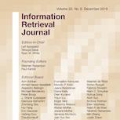We consider the problem of maximizing the gains from trade (GFT) in two-sided markets. The seminal impossibility result by Myerson shows that even for bilateral trade, there is no individually rational (IR), Bayesian incentive compatible (BIC) and budget balanced (BB) mechanism that can achieve the full GFT. Moreover, the optimal BIC, IR and BB mechanism that maximizes the GFT is known to be complex and heavily depends on the prior. In this paper, we pursue a Bulow-Klemperer-style question, i.e. does augmentation allow for prior-independent mechanisms to beat the optimal mechanism? Our main result shows that in the double auction setting with $m$ i.i.d. buyers and $n$ i.i.d. sellers, by augmenting $O(1)$ buyers and sellers to the market, the GFT of a simple, dominant strategy incentive compatible (DSIC), and prior-independent mechanism in the augmented market is least the optimal in the original market, when the buyers' distribution first-order stochastically dominates the sellers' distribution. Furthermore, we consider general distributions without the stochastic dominance assumption. Existing hardness result by Babaioff et al. shows that no fixed finite number of agents is sufficient for all distributions. In the paper we provide a parameterized result, showing that $O(log(m/rn)/r)$ agents suffice, where $r$ is the probability that the buyer's value for the item exceeds the seller's value.
翻译:暂无翻译



